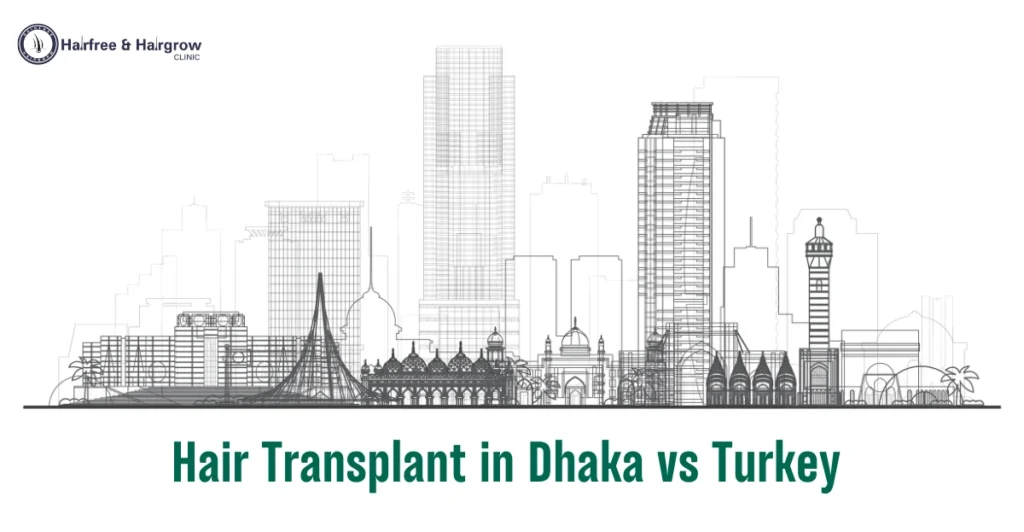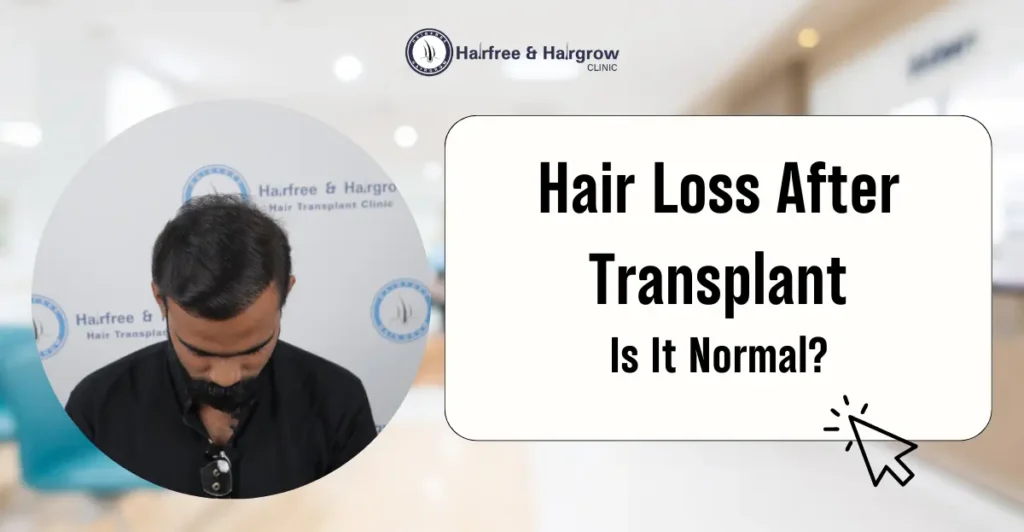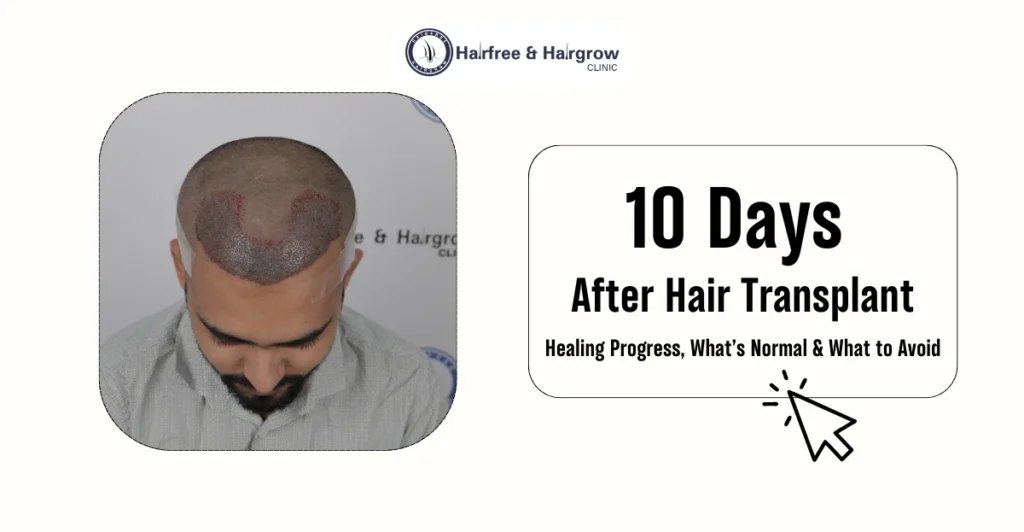Pregnancy brings a lot of happiness with various changes in all aspects of a woman, be it physical or emotional changes.
For example, pregnancy in most women is associated with pregnancy hair thinning as a result of hormonal changes, while some women may develop hair loss during this same period. Learning how to manage such stressors during pregnancy could take away some of the fears accompanying these changes.
Our Clinic Location: Hair Transplant in Dhaka
Table of Contents
Understanding Hair Changes During Pregnancy
While these changes are considered normal, changes in hair structure also can be observed in the course of pregnancy due to hormonal imbalance. Some women realize that their hair has developed into a full mane that is smooth and bouncy while some suffer pregnancy hair loss. These hair changes do not last as long and go away rather fast after one gives birth.

Why Does Hair Loss Happen During Pregnancy?
There are several reasons that can be given to account for the cause of hair loss in pregnancy as analyzed below:
- Hormonal Fluctuations: Hormones are regarded as the primary investors in the hair growth cycle. Hair loss in pregnancy is caused by hormonal increases and decreases in estrogen hormones, as estrogen levels override the shedding phase during pregnancy. Conversely, some women may suffer hair loss due to changing levels of other hormones such as progesterone, pregnancy, and hair loss.
- Nutritional Deficiencies: Pregnancy increases the body’s demand which will preclude the essentials in the diatron. Had it been during a normal healthy life without the conditions of any pregnant woman, nutritional deficiency such as vitamins and minerals eg. Iron, Zinc, and Vitamin D may lead to baldness.
- Stress and Physical Changes: Given that pregnancy is both medically and emotionally restorative, it is equally likely that this can also affect hair during the period of pregnancy.
- Underlying Health Conditions: Loss of hair is common in pregnant women as a result of other underlying disorders associated with pregnancy for instance thyroid illnesses and gestational diabetes. These should be managed and handled by a doctor.
Read More – Daily Hair Loss: Why Am I Losing More Hair Than Usual?
What to Do About Hair Loss
While Pregnant In the span of pregnancy, people lose hair for various reasons, and these can be minimized in the following ways:
Maintain A Balanced Diet:
- Nutrition-Dense Foods: Foods such as dark greens, seeds, and nitrates containing vitamins and minerals should be incorporated in meal should be introduced to improve hair quality.
- Prenatal Vitamins: Effective management of diet can also involve use of supplements such as preconception cocktail to ensure you stay healthy and the baby grows well.
Gentle Hair Care Practices:
- Avoid Harsh Treatments: It’s best to steer of treatments, like heat styling and chemical hair treatments when you’re pregnant as they could potentially damage your hair follicles.
- Use Mild Shampoos and Conditioners: Avoid use of shampoos and conditioners to prevent scalp irritation that could lead to hair loss from those products containing sulfates.
Stress Management:
- Relaxation Techniques: Activities such as yoga, meditation and deep breath has been proven to be the best particles for stress management especially in pregnancy.
- Adequate Sleep: During the pregnancy a lady requires at least 8-10 hours in a day.
Will Hair Loss Continue After Pregnancy?
Postpartum Hair Loss: After childbearing, a good number of women will lose hair because there is a significant reduction in the level of estragon after birth. Usually it is a reversible form of hair loss and can be seen mostly between three to six months postpartum.
Recovery Timeline: A woman will most likely have hair regrowth from about 6 to 12 months postnatal. It should be noted that a nourishing diet and a safe regimen of hair care will aid in recovery.
Read More – How to Stop Hair Loss Due to PCOS
When to See a doctor
Excessive Hair Loss: If there is a possibility of excessive shedding of hair or hair loss exceeds a year’s duration postpartum, then one needs to see a doctor. They will be able to assert possible conditions and treatment needed.
Consulting a Dermatologist: The dermatologist may also offer hair restoration planning. External application of minoxidil and other treatments for hair restoration may be suggested.
Conclusion
Although hair loss during pregnancy is one of the delicate issues most women face, the focus of this paper is to analyze the root causes and the effective management approaches. Healthy diets, gentler hair care and relaxation can be practiced during this period to help enhance hair health
FAQ
Certainly! Some women may experience hair loss during the gestational period which is quite normal owing to changes and so many other reasons.
Iron and zinc in addition to vitamin D which is included in prenatal vitamins can also help reduce hair loss by correcting deficiencies present in the body.
There are quite a few reasons that can lead to loss of hair while one is can be stress, like reverting hair strands back to their resting phase or telogen menopause.
The period of hair loss that occurs after the delivery of a baby happens normally at three months to six months however can also start growing within six to twelve months after the child birth.
Gentle sulfate free shampoos & conditioners, as well as avoiding further treatments, and eating a healthier diet are some of the best hair care practices while pregnant.

Written By
Medical Officer & Hair Transplant Surgeon
Dr. Nazmin Sultana Nipa is a distinguished hair transplant doctor in Bangladesh, known for her advanced skills in hair restoration. As a Medical Officer and Hair Transplant Surgeon, Dr. Nipa combines her extensive experience in the field with a focus on transparency and patient-centered care.
Disclaimer
We’ve made all possible efforts to ensure that the information provided here is accurate, up-to-date and complete, however, it should not be treated as a substitute for professional medical advice, diagnosis or treatment. See Detailed Disclaimers Here.



